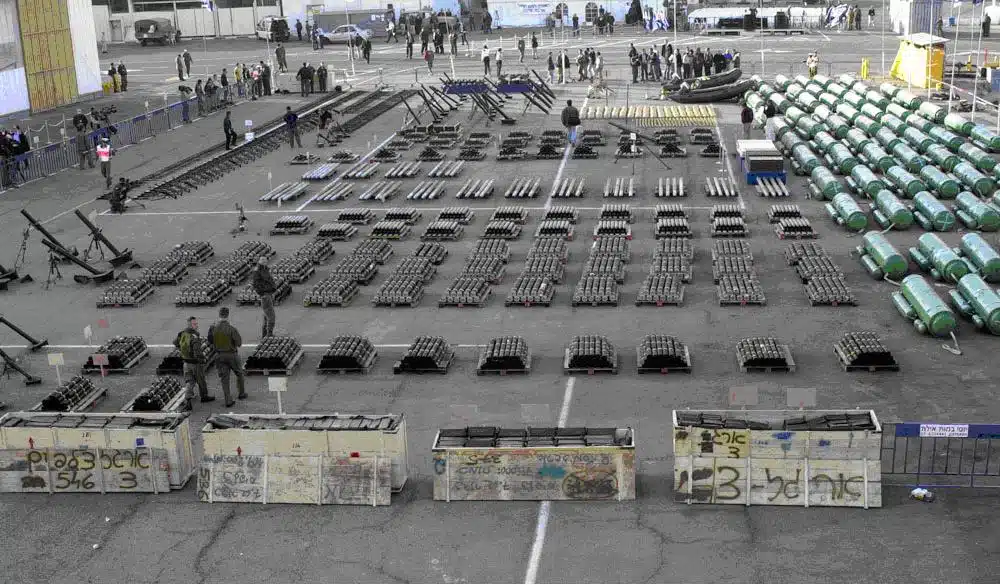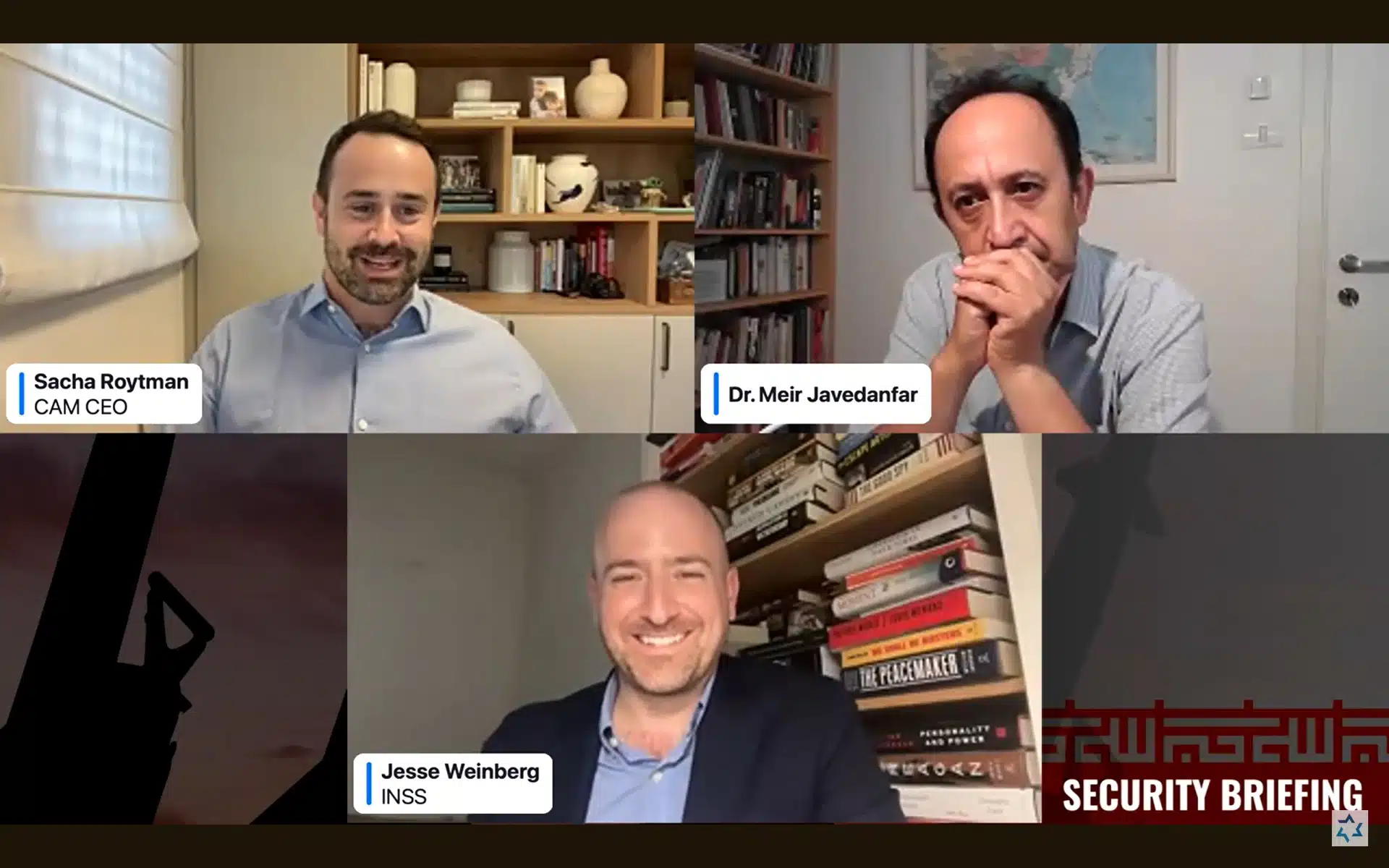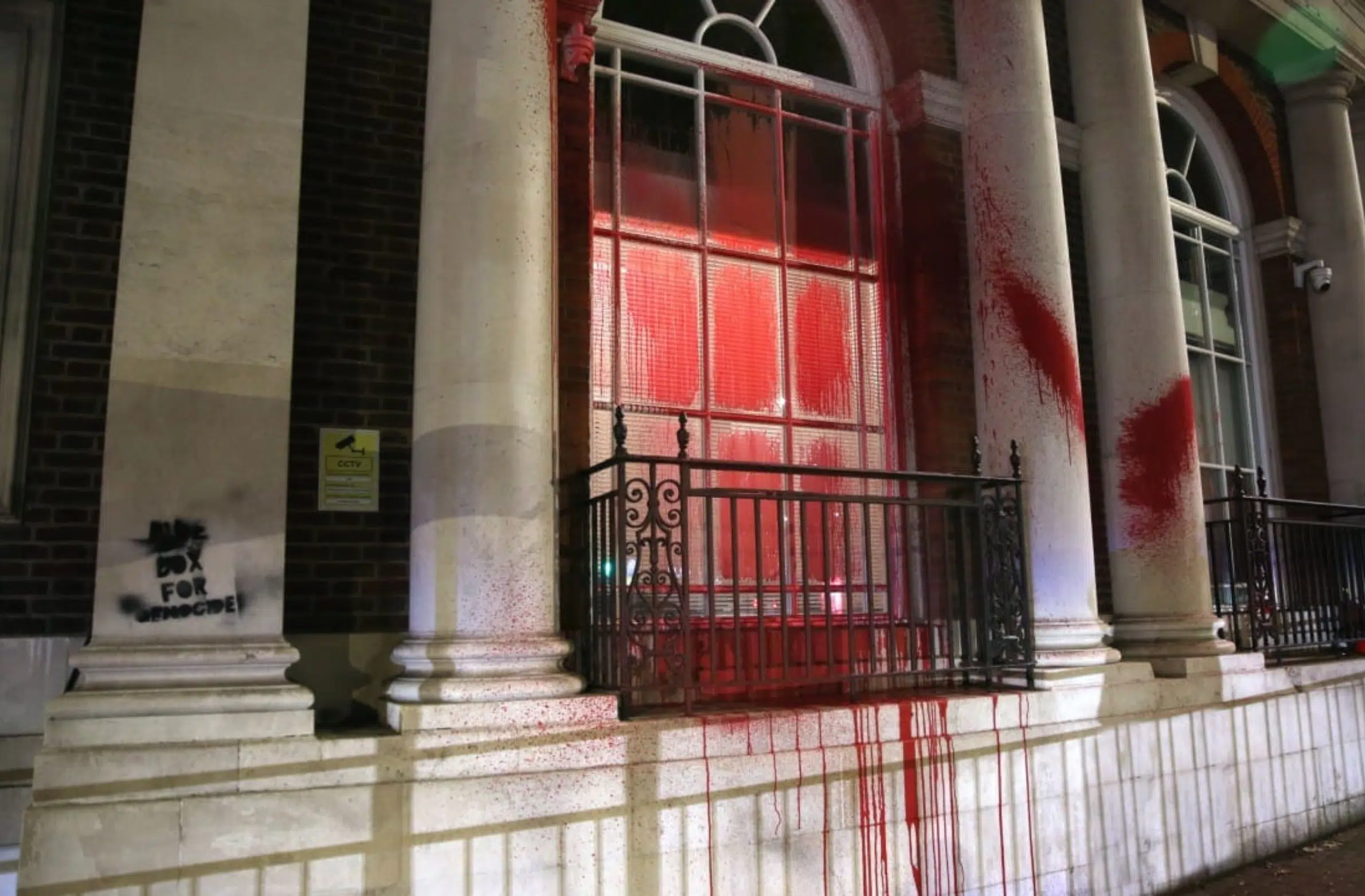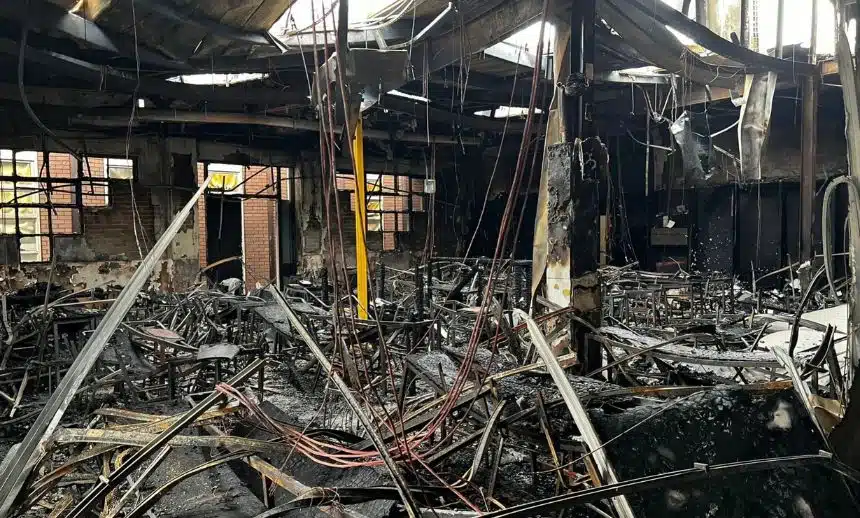|
Getting your Trinity Audio player ready...
|
This op-ed was authored by Zachary Schildcrout, Research and Data Manager for the Combat Antisemitism Movement (CAM).
The anti-Israel hate site Mondoweiss recently published an interview with Leila Khaled, member of the Popular Front for the Liberation of Palestine (PFLP) terrorist organization and infamous former airplane hijacker.
Characterized by Mondoweiss as Khaled’s reflection on her “lifetime of resistance” and the “significance of October 7 for the global solidarity movement,” the interview was as chilling as it was enlightening, providing critical insight into the thought processes that drive hatred of the Jewish state.
Asked for her thoughts about Hamas’ October 7th attack, Khaled offered a full-throated endorsement of the atrocity, responding, “The 7th of October was a must, it had to happen because the history of the struggle is long between us and the enemy … It showed you that we had to make a drastic change.”
Outlining her vision for the future, Khaled similarly argued, “We agree — as the Palestinian resistance, not just Hamas but all fighters who carry weapons — that … We have one path, and it leads to Palestine: armed resistance.”
That a notorious terrorist would endorse terrorism is unsurprising. Perhaps more puzzling is that in the same breath, Khaled lamented, “This war that is happening is a genocidal onslaught, until when will it last?” She further insisted, “Every country, alongside with the United Nations, must push for their governments to cut ties with Israel.”
The false framing of Israel’s war to destroy Hamas as “genocide” aside, Khaled’s words beg obvious questions — Why would she celebrate a massacre that prompted a war she now laments? And if the war is intolerable, why would the “one path” for the future be yet more “armed resistance” that would only inflict further misery?
The answer is multifaceted. Certainly, a key explanation is a particular dehumanization of Jewish people that, in the mind of antisemites, renders them both victims to be murdered and subjects undeserving of the basic right to defend their own lives. Israeli Jews, it would seem, must accept their fate at the hands of death squads whose foot soldiers should face no consequences for their crimes. If Israel refuses to accept this macabre equation and practices self-defense as any nation would, it becomes a “genocidal victimizer” that must face ostracism from the global community.
Such flawed thinking blinds Khaled and her ilk from internalizing that the miserable repercussions of war with Israel stems directly from terrorism against Israeli civilians.
This tragic cycle — lionization of war and violence against Israel while deploring its consequences — is unfortunately a historical pattern. Political theorist Shany Mor has written about it extensively, outlining how wars against Israel in 1947, 1967, and 2000 were “preceded by months of excitement in the Arab world and heated rhetoric that was simultaneously righteous and violent” before “the excitement and frenzy were excised from collective memory, so that the event came to be remembered as a case of pure cruelty by the hand of the Israeli other.”
Mor partly explains this phenomenon by arguing that “critical self-reflection is torturous, and what is hard enough in the case of a single person is excruciating for a political community.” Yet, as he astutely observes, “transforming self-caused defeat into noble victimhood isn’t just ahistorical — it more or less guarantees that the defeat will be repeated.”
Indeed. Imagine if, for example, the German people’s key takeaway from World War II was not that the murderous, antisemitic Nazi regime should be discarded into the dustbin of history to make way for tolerant, prosperous, and peaceful democratic rule, but that German society must avenge its “unjust” defeat at the hands of the Allies. Europe might never have enjoyed the post-war stability of the past eight decades. In fact, Germany’s desire to topple the international order that arose from its loss in World War I set the stage for the Nazis taking power and the subsequent genocide of European Jewry.
Palestinian leaders, like Germany’s after the Second World War, could choose to abandon violent antisemitism and embrace a peaceful future. But so long as they pursue terrorism and war in a futile effort to destroy Israel, the region will not know peace. It is high time for backers of this antisemitic cause — from world leaders to campus activists — to acknowledge this.










